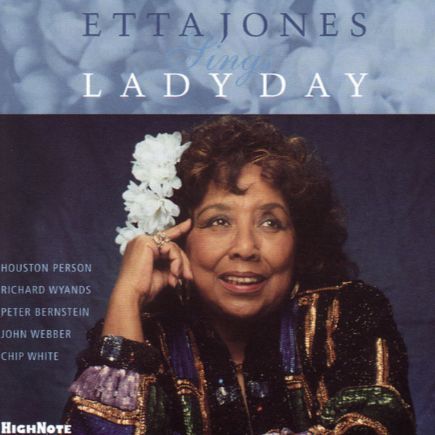God Bless the Child: une déclaration d’indépendance dans l’Amérique des inégalités
Écrite en 1939 par Arthur Herzog Jr. et Billie Holiday, God Bless the Child est bien plus qu’une ballade poignante: c’est un manifeste d’autonomie personnelle et de lucidité sociale.
Enregistrée pour la première fois le 9 mai 1941 par Holiday elle-même, la chanson puise sa force dans un épisode intime et douloureux. À la suite d’une dispute avec sa mère à propos d’argent, Holiday aurait lancé: ‘God bless the child that’s got his own’. Cette phrase, devenue le cœur du morceau, traduit un mélange de colère, de fierté blessée et de détermination.
Dès la première ligne — ‘Them that’s got shall get, them that’s not shall lose’ (Ceux qui ont recevront, ceux qui n’ont pas perdront) — le ton est donné: cynique, amer, mais d’une vérité implacable. Dans l’Amérique encore marquée par la Grande Dépression, les paroles de God Bless the Child évoquent la dureté des rapports sociaux, la précarité économique, et la fragilité des liens humains face à l’argent.
Etta Jones et l’héritage de Billie Holiday
Le 21 juin 2001, à New York, Etta Jones enregistre Sings Lady Day, un album-hommage à Billie Holiday, en interprétant neuf standards. Parmi les titres choisis figure la ballade God Bless the Child, devenue l’un de ses morceaux les plus emblématiques. En interprétant ce titre à la toute fin de sa carrière – quelques mois avant sa disparition – Etta Jones signe une déclaration d’amour et de fidélité à l’une de ses plus grandes influences.
La version de Jones se distingue par une sobriété lumineuse, choisissant la retenue et la douceur, tout en conservant une intensité dramatique. Sa voix, encore riche et nuancée malgré la fragilité de la fin de vie, capte l’essence du texte. Chaque phrasé s’appuie sur une articulation claire, héritée du jazz vocal le plus exigeant, mais porté par une chaleur et une humanité qui lui sont propres.
Avec Sings Lady Day, Etta Jones revient aux sources, à ce répertoire qui a façonné son identité artistique et guidé son rapport au jazz. La chanteuse est décédée le jour de la sortie officielle de l’album, mais elle est étonnamment en forme tout au long de cet album, terminant ainsi sa carrière en beauté.
God Bless the Child: una declaración de independencia en la América de las desigualdades
Escrita en 1939 por Arthur Herzog Jr. y Billie Holiday, God Bless the Child es mucho más que una balada conmovedora: es un manifiesto de autonomía personal y de aguda lucidez social.
Grabada por primera vez el 9 de mayo de 1941 por la propia Holiday, la canción extrae su fuerza de un episodio íntimo y doloroso. Tras una discusión con su madre por cuestiones de dinero, Holiday habría dicho: “God bless the child that’s got his own”. Esta frase, que se convirtió en el eje del tema, expresa una mezcla de ira, orgullo herido y determinación.
Desde la primera línea — “Them that’s got shall get, them that’s not shall lose” (A los que tienen, se les dará; a los que no tienen, se les quitará) — el tono queda claro: cínico, amargo, pero de una verdad implacable. En una América aún marcada por la Gran Depresión, la letra de God Bless the Child evoca la dureza de las relaciones sociales, la precariedad económica y la fragilidad de los vínculos humanos frente al dinero.
Etta Jones y el legado de Billie Holiday
El 21 de junio de 2001, en Nueva York, Etta Jones grabó Sings Lady Day, un álbum-homenaje a Billie Holiday en el que interpreta nueve estándares. Entre los temas elegidos se encuentra la balada God Bless the Child, convertida en una de las piezas más emblemáticas de Holiday. Al interpretarla en el ocaso de su carrera, pocos meses antes de su fallecimiento, Jones firma una declaración de amor y de fidelidad hacia una de sus mayores influencias.
La versión de Jones se distingue por una sobriedad luminosa, optando por la contención y la dulzura sin perder intensidad dramática. Su voz, todavía rica y matizada pese a la fragilidad de los últimos años, capta la esencia del texto. Cada fraseo se apoya en una articulación clara, heredada del jazz vocal más exigente, pero impregnada de una calidez y humanidad propias.
Con Sings Lady Day, Etta Jones regresa a las raíces, a ese repertorio que moldeó su identidad artística y orientó su relación con el jazz. La cantante falleció el mismo día en que el disco fue oficialmente lanzado, pero sorprendentemente muestra una forma espléndida a lo largo de toda la grabación, concluyendo así su carrera con una obra de gran belleza.
God Bless the Child: una dichiarazione d’indipendenza nell’America delle disuguaglianze
Scritta nel 1939 da Arthur Herzog Jr. e Billie Holiday, God Bless the Child è molto più di una ballata toccante: è un manifesto di autonomia personale e di lucida consapevolezza sociale.
Registrata per la prima volta il 9 maggio 1941 dalla stessa Holiday, la canzone trae la sua forza da un episodio intimo e doloroso. In seguito a una lite con la madre per questioni di denaro, Holiday avrebbe detto: “God bless the child that’s got his own”. Questa frase, divenuta il cuore del brano, esprime un misto di rabbia, orgoglio ferito e determinazione.
Fin dal primo verso — “Them that’s got shall get, them that’s not shall lose” (A chi ha, sarà dato; a chi non ha, sarà tolto) — il tono è chiaro: cinico, amaro, ma di una verità innegabile. Nell’America ancora segnata dalla Grande Depressione, il testo di God Bless the Child evoca la durezza dei rapporti sociali, la precarietà economica e la fragilità dei legami umani di fronte al denaro.
Etta Jones e l’eredità di Billie Holiday
Il 21 giugno 2001, a New York, Etta Jones registra Sings Lady Day, un album-omaggio a Billie Holiday che raccoglie nove standard. Tra i brani scelti figura la ballata God Bless the Child, divenuta una delle composizioni più emblematiche di Holiday. Interpretando questo brano alla fine della sua carriera – pochi mesi prima della sua scomparsa – Jones firma una dichiarazione d’amore e di fedeltà verso una delle sue più grandi ispirazioni.
La versione di Jones si distingue per una sobrietà luminosa, che predilige la misura e la dolcezza senza rinunciare all’intensità drammatica. La sua voce, ancora ricca e sfumata nonostante la fragilità degli ultimi anni, cattura l’essenza del testo. Ogni fraseggio poggia su un’articolazione chiara, ereditata dal jazz vocale più esigente, ma alimentata da un calore e un’umanità inconfondibili.
Con Sings Lady Day, Etta Jones ritorna alle origini, a quel repertorio che ha formato la sua identità artistica e guidato il suo rapporto con il jazz. La cantante morì il giorno stesso dell’uscita ufficiale dell’album, ma appare sorprendentemente in forma lungo tutta la registrazione, chiudendo la sua carriera con un’opera di grande bellezza.
God Bless the Child: a declaration of independence in an America of inequality
Written in 1939 by Arthur Herzog Jr. and Billie Holiday, God Bless the Child is far more than a poignant ballad—it is a manifesto of personal autonomy and social awareness.
First recorded on May 9, 1941, by Holiday herself, the song draws its emotional power from an intimate and painful episode. Following an argument with her mother over money, Holiday reportedly said: “God bless the child that’s got his own”. That phrase, which became the song’s central refrain, reflects a mix of anger, wounded pride, and unwavering resolve.
From the very first line—“Them that’s got shall get, them that’s not shall lose”—the tone is set: cynical, bitter, but brutally honest. In an America still reeling from the Great Depression, the lyrics of God Bless the Child evoke the harshness of social dynamics, economic insecurity, and the fragility of human relationships in the face of money.
Etta Jones and the legacy of Billie Holiday
On June 21, 2001, in New York, Etta Jones recorded Sings Lady Day, an album tribute to Billie Holiday in which she interprets nine standards. Among the chosen pieces is the ballad God Bless the Child, one of Holiday’s most iconic songs. By performing it at the very end of her career—just a few months before her passing—Jones signed a declaration of love and loyalty to one of her greatest influences.
Jones’s version stands out for its luminous restraint, favoring delicacy and control while retaining dramatic intensity. Her voice, still rich and nuanced despite the frailty of her final months, captures the essence of the lyrics. Each phrase rests on a clear articulation, inherited from the most demanding vocal jazz tradition, yet carried by a warmth and humanity uniquely her own.
With Sings Lady Day, Etta Jones returned to the roots, to the repertoire that shaped her artistic identity and guided her approach to jazz. The singer passed away on the very day of the album’s official release, yet she sounds remarkably strong throughout, ending her career with a work of striking beauty.


